#clarissa dalloway <3
Note
also, ghibli boy, is 18shadesofmay a reference or can i figure it out with weird theories
hehe hi mrs dalloway
it was honestly bohot impulse username😭
i was born in may + i was 18 when i made this account. that’s literally it.
fuck, it’s SUSPICIOUSLY similar to “50 shades of grey”. i might need to change😭
12 notes
·
View notes
Text
still not over the name thing tbh i get jump scared every time they say ‘carissa’
#not a lot of people have that name!!! i think the closest i’ve come to a fictional namesake is clarissa dalloway modernist bisexual icon!#and okay annnnd there was a one episode greys anatomy patient in like season 18 who gets dumped by her fiancé for being a self centered bitc#i just watched that episode with my college roommate <3#in any case carissa’s out there are NOT representing 😬😬#do revenge lb
2 notes
·
View notes
Text
Current Submissions
Submissions remain open until ~10pm pst tomorrow (March 3rd); submit through this form or the ask box
Those who have secured spots on the bracket (3 or more submissions);
Elizabeth Bennett & Fitzwilliam Darcy from Pride and Prejudice by Jane Austen
Enjolras & Grantaire from Le Misérables by Victor Hugo
Victor Frankenstein & Henry Clerval from Frankenstein by Mary Shelly
Faustus & Mephistopheles from Dr Faustus by Christopher Marlowe
Ishmael & Queequeg from Moby-Dick by Herman Melville
Mina & Johnathan Harker from Dracula by Bram Stoker
Henry Jekyll & Gabriel Utterson from The Strange Case of Dr Jekyll and Mr Hyde by Robert Louis Stevenson
Other possible contenders (under read more);
Offred & Moria from The Handmaid's Tale by Margaret Atwood
Celie & Shug from The Color Purple by Alice Walker
Lestat & Marius from The Vampire Chronicles by Anne Rice
Gimli & Legolas from Lord of the Rings by JRR Tolkien
Samwise Gamgee & Frodo Baggins from Lord of the Rings by JRR Tolkien
Gandalf & Hobbits from the works of Tolkien
Romeo & Juliet from Romeo and Juliet by William Shakespeare
Clarissa Dalloway & Sally Seton from Mrs Dalloway by Virginia Woolf
Anne Elliot & Frederick Wentworth from Persuasion by Jane Austen
Emma Woodhouse & George Knightley from Emma by Jane Austen
Maurice & Alec from Maurice by EM Forster
Margaret & Thornton from North and South by Elizabeth Gaskell
Holden Caufield & Stradletter from The Catcher in the Rye by JD Salinger
Charlie & Patrick from The Perks of Being a Wallflower by Stephen Chbosky
Gene Forrester & Finny from A Separate Peace by John Knowles
Tom Sawyer & Huckleberry Finn from the works of Mark Twain
John Yossarian & the Chaplain from Catch-22 by Joseph Heller
Jane Eyre & Helen Burns from Jane Eyre by Charlotte Brontë
Lionel Verney & Adrian Windsor from The Last Man by Mary Shelly
Eugenie Danglars & Louise d'Armilly from The Count of Monte Cristo by Alexandre Dumas
Dante & Virgil from The Divine Comedy by Dante Alighieri
Hamlet & Horatio from Hamlet by William Shakespeare
Lizzie Hexam & Eugene Wrayburn from Our Mutual Friend by Charles Dickens
Phileas Fogg & Passepartout from Around the World in 80 Days by Jules Verne
Huckleberry Finn & Jim from the works of Mark Twain
Sherlock Holmes & John Watson from Sherlock Holmes by Sir Arthur Conan Doyle
Lord & Lady Macbeth from Macbeth by William Shakespeare
Beatrice & Benedick from Much Ado About Nothing by William Shakespeare
Gilgamesh & Enkidu from The Epic of Gilgamesh
Heathcliff & Catherine Earnshaw from Wuthering Heights by Emily Brontë
Mr. Collins & Elizabeth Bennett from Pride and Prejudice by Jane Austen
Victor Frankenstein & Adam ('the creation') from Frankenstein by Mary Shelly
Dorian Gray & Lord Henry from The Picture of Dorian Gray by Oscar Wilde
Rodion Raskolnikov & Mitya Razumikhin from Crime and Punishment by Fyodor Dostoyevsky
Rosencrantz & Guildenstern from Hamlet by William Shakespeare
First Mate Starbuck & Captain Ahab from Moby-Dick by Herman Melville
Charles Bingley & Fitzwilliam Darcy from Pride and Prejudice by Jane Austen
Jane Eyre & Mr. Rochester from Jane Eyre by Emily Brontë
Jean Valjean & Inspector Javert from Le Misérables by Victor Hugo
Victor Frankenstein & Robert Walton from Frankenstein by Mary Shelly
Mary Catherine Blackwood & Constance Blackwood from We Have Always Lived in the Castle by Shirley Jackson
Benvolio & Mercutio from Romeo and Juliet by William Shakespeare
Achilles & Patroclus from The Illiad
Ajax & Ajax from The Illiad
Jack & Ralph from The Lord of the Flies by William Golding
Telemachus & Theoclymenus from The Odyssey
Jo & Laurie from Little Women by Louisa May Alcott
Elinor Dashwood & Edward Farrars from Sense and Sensibility by Jane Austen
Charles Bingley & Jane Bennett from Pride and Prejudice by Jane Austen
Jo, Amy, Meg, & Beth from Little Women by Louisa May Alcott
Jack Seward & Abraham van Helsing from Dracula by Bram Stoker
Henry Jekyll & Edward Hyde from The Strange Case of Dr Jekyll and Mr Hyde by Robert Louis Stevenson
Ned Land & Conseil from 20,000 Leagues Under the Sea by Jules Verne
Earl of Montararat & Earl Tolloler from Iolanthe
Fogg, Passepartout, & Aouda from Around the World in Days by Jules Verne
Guy Montag & Professor Faber from Fahrenheit 451 by Ray Bradbury
Nick Carraway & Jay Gatsby from The Great Gatsby by F. Scott Fitzgerald
Napoleon & Squealer from Animal Farm by George Orwell
Antonio & Sebastian from Twelfth Night by William Shakespeare
Antonio & Sebastian from The Tempest by William Shakespeare
29 notes
·
View notes
Text
thank you so much for the tag @munsonsreputation <3
Do you play an instrument?
Yes! Guitar (mostly an acoustic one since I don't owe an electric), ukulele, piano and drums
Favourite book characters?
Clarissa Dalloway (from Mrs Dalloway, by Virginia Woolf)
What's your star sign?
Gemini sun, virgo moon, leo rising
Favourite colour schemes?
Blues, greens and white
Naps or long sleep?
These days I'm just hoping to catch some sleep, so both of them are fine for me haha
What languages do you speak?
English, Portuguese and a little bit of Italian
Dreams/aspirations.
As for a dream, I wanna live in a few different countries for a while. But when it comes to job, I wanna work as an editor/proofreader/translator, because it's what I love
Tea or coffee?
Tea, always. I love coffee, but I'm super sensitive to caffeine, so I can't drink it most of the time
Bring a book character to life or go into a fictional world?
I have a few original characters of mine that I would DIE to bring to life (can't tell more about it bc it's an wip)
npt: @dukesmebby @corrodedcorpses @andvys
2 notes
·
View notes
Text
Thanks for the tag @capitano-marina
new tag game!
featuring: questions i never really see
1. a time period you feel you'd do well in: if I had money? Probably late 1700/1800.
2. a mythical animal you wish you could be: a happy human being
3. your favourite time of day: probably night-time and the moment before sunrise.
4. the main character that's the most like you: that's a tough one.. I'm probably a good mix between Maya Bishop and Phil Dunphy.
5. your favourite flower: ibiscus
6. a universe you would love to be in: anyone but this one lol
7. the aesthetic you wish you had: Cabincore
8. a character you would love to be: wouldn't hurt to be one of the two Mrs Deluca-Bishop, but I'm gonna be realistic so Clarissa Dalloway.
9. a character you would be best friends with: Felix from orphan black.
10. your favourite outfit to wear: comfy pants and a turtleneck sweater.
Tagging (I'm sorry if you already have been tagged): @amaltheaz @heyfarfallina @anyonewhowantstodothis !
1 note
·
View note
Text
2023 Book Reviews
Idea by the lovely @thatwasthenightthingschanged ✨
I’ve recently started a module on medieval woman’s literature which explains the randomness in books lol
Autumn by Ali Smith: she quickly became my favorite author with my favorite writing style, loosely goes in and out of situations, kinda like flash fiction, challenges Brexit 5/5
Mrs. Dalloway by Virginia Woolf: a tad strange as everything by Virginia in my opinion, Clarissa Dalloway is unbearable but I guess that’s the point, still like the writing style, gives a nice idea of life in the 1910s 3/5
Cleopatra and Frankenstein: very moving, you know the ending before it starts but it is not boring or predictable, shows that everyone has gone trough some shit 4.5/5
Everything I know about love by Dolly Alderton: seemed a bit pretentious as first but definitely grew on me, this is not a fiction novel but it tends to feel like it, she lives a very different life than me 3.5/5
Voyage in the dark by Jean Rhys: again a bit strange, challenges immigration and racism, main character loves retail therapy, dramatic 3.5/5
How not to fall in love by Emily Foster: boring, predictable, unrealistic, don’t know what I expected, some romance never hurt nobody 1.5/5
Never let you go by Kazuo Ishiguro: that guy won the Nobel price for literature, he is seriously a good writer, it is odd and frustrating but so relevant and important, dystopian 4/5
Thinking with Trees by Jason Allen-Paisant: beautiful poetry that connects human kind to nature, 4/5
The Lais of Marie de France by Marie de France: medieval fairytales that are slightly absurd and secretly feminist, worth a read if you are into historic lit but do yourself a favor and read the modern English version 4/5
Visions showed to a devout woman by Julian of Norwich: support an anchorite in her delusions, wish I was her, medieval visions of Christ’s crucifixion 2/5
The book of Margery Kempe by Margery Kempe: had 14 children, then decided she wanted to be married to God instead of her husband, she goes on fun trips! (Pilgrimage), again support a girl in her delusions, unintentionally funny, hates her husband, 3/5
Girl, Woman, other by Bernadine Evaristo: feminists, shows the struggles of various woman, not (!) written in verse as people assume, not a light read but a good read 4.5/5
Hope you enjoyed it, happy reading ✨
1 note
·
View note
Text
Mrs dolloway novel full info
"Mrs. Dalloway" is a novel written by British author Virginia Woolf. It was first published in 1925 and is considered one of Woolf's most significant works. Here is some full information about the novel:
**Title:** Mrs. Dalloway
**Author:** Virginia Woolf
**Publication Year:** 1925
**Genre:** Modernist Fiction, Stream of Consciousness
**Plot Summary:**
"Mrs. Dalloway" is a novel that takes place in a single day in the life of the titular character, Clarissa Dalloway, an upper-class Englishwoman living in post-World War I London. The story is notable for its use of stream-of-consciousness narrative style, where the thoughts and inner experiences of the characters are prominently featured.
Throughout the day, Clarissa Dalloway prepares for a party she will host that evening. The narrative follows her as she goes about her day, interacting with various characters and reflecting on her life, her past, and the people around her. Meanwhile, the novel also introduces the character of Septimus Warren Smith, a war veteran who is suffering from severe post-traumatic stress disorder. His storyline runs parallel to Clarissa's and serves as a contrast to her privileged but constrained existence.
The novel explores themes of social class, mental illness, the passage of time, and the inner lives of its characters. It is often celebrated for its innovative narrative style and its profound exploration of the complexities of human consciousness and society.
**Significance:**
"Mrs. Dalloway" is considered a classic of modernist literature and is highly regarded for its experimental narrative techniques and its insights into the human psyche. Virginia Woolf's use of stream-of-consciousness writing is seen as groundbreaking and influential in the development of 20th-century literature. The novel is often studied in literature courses and is recognized as one of Woolf's most important works.
"Mrs. Dalloway" by Virginia Woolf features several key characters, each with their own distinctive traits and complexities. Here are some of the main characters in the novel:
1. **Clarissa Dalloway:** The novel's central character, Clarissa Dalloway, is an upper-class Englishwoman in her fifties. She is the hostess of the party that serves as a focal point of the novel. Clarissa is introspective and reflective, often contemplating her past and her choices in life. Her character is a portrayal of the constraints and expectations placed on women in her social class during the early 20th century.
2. **Septimus Warren Smith:** Septimus is a war veteran who fought in World War I and is suffering from severe post-traumatic stress disorder. His character provides a contrast to Clarissa's privileged life. He represents the impact of war on the human psyche and the difficulty of reintegration into society.
3. **Peter Walsh:** Peter is an old friend of Clarissa's and a former suitor. He has recently returned to London from India and is a source of conflict and reflection for Clarissa as she remembers their shared history.
4. **Sally Seton:** Sally is a friend of Clarissa's from her youth. She represents a more free-spirited and unconventional lifestyle, and her character serves as a contrast to Clarissa's more conventional choices.
5. **Richard Dalloway:** Richard is Clarissa's husband. He is a member of the British Parliament and is portrayed as a stable and sensible figure, which contrasts with Clarissa's inner turmoil and introspection.
6. **Lucrezia Warren Smith:** Lucrezia is Septimus' Italian-born wife, who is deeply concerned about her husband's deteriorating mental state. She is a character who cares for Septimus and is an important part of his storyline.
7. **Miss Kilman:** Miss Kilman is a devoutly religious and fanatical woman who becomes involved in the lives of the Dalloway family, particularly Elizabeth Dalloway. Her character represents a clash of values with the more secular, upper-class world of Clarissa and her daughter.
These characters interact and intersect over the course of a single day in the novel, each contributing to the exploration of various themes and the portrayal of the inner lives and social dynamics of the characters in post-World War I London.
If you have specific questions or need more information about the novel, please feel free to ask,and click here -
1 note
·
View note
Text
The Hours || Michael Cunningham
★★★★☆ 1/2
TW: SUICIDE
I just finished my next book! I told you guys that I hopes I would like the next one more than the last and I did! holy shit
I am going to throw my thoughts and discussion below a cut due to the nature of the book. Please be advised by the trigger warning and keep yourself safe.
omgomgomg this book is amazing. I was very hesitant when I first picked it up. I knew that the very first thing I would read in the book was a suicide scene. The prologue depicted Virginia Woolf's death.
This make me uneasy. Especially since this is a genre of book that I normally would not read. It was already out of my wheelhouse and then added sensitive material like that front and center.
However, I did have to read the book for class, so I pushed through.
This novel tells the story of three women (Mrs. Clarissa Dalloway in the 90's, Mrs. Laura Brown in the 40's, and Virginia Woolf). The way it approaches this is by alternating POVs. Each 'chapter' is a scene from one singular day in each character's life. And through this singular day we learn the overarching plot of the story.
It is such a new (to me) way to tell this kind of story and I am all here for it! Not only that, but the writing itself was done well. I never once got lost or didn't know what was going on, even with the sparse amount of details that the author gives at any given moment.
But I think the one thing that I have remained undecided on is the physical format of the book. You see, I am a hard back kind of person. If given the option for a hard back copy, I will take it. So when I saw that I could get a normal paperback or a hard cover, I went my normal hard cover route. I did not expect what came. It was as if I ordered this book off wish! It is tiny. The paperback is normal size (I've seen ym classmates editions), but the hard cover is legitimately like 3"x4". tiny
Past this point I will be discussing the overarching plot, if you wish to not have that spoiled for you, you can finish reading here!
Virginia writes a book about Mrs. Dalloway, then commits suicide before she is able to move back to London with her husband.
This book is then bought by Laura Brown, a self proclaimed bookworm who doesn’t understand how someone like Virginia could be driven to suicide. She then reads the book and contemplates suicide herself (not due to the book, just came to the realization that she could die because of the book. She lives because of her son and unborn child). Laura eventually leaves her husband and children, but lives.
One of her children, the son, is Richard. He meets Clarissa at 18 and gives her the nickname Mrs. Dalloway after the book his mother used to read. Seems to be the most significant tie to his mother that we get through the narrative of this story. However, this day that we see of Clarissa is the day that Richard kills himself. This brings Clarissa and Laura together at the end of the book.
The way that we learn this overarching story is very interesting. We know from the very beginning that there is a tie between Clarissa and Virginia through the name Clarissa holds. We also know from the beginning that Laura reads Virginia’s works. However, we do not know how these three women are connected other than through the literary work. We do learn the names of Richard (from Clarissa’s pov) and Richie (from Laura’s pov) at the beginning of the book, but his last name is not revealed until he dies at the end. It was an oh moment for me, as you can see in my notes. I didn’t put it together until the last name was revealed.
Overall, I think this book is amazing. It reveals information on a need to know basis and does it’s best to not spoil it’s overarching plot until the last three sections of the book. Wild.
I am planning on writing little things like this every time I read a book just to help me keep track of them. If I don’t write down my opinions and thoughts right away I am liable to forget them. I am hesitant to call these a review because i’m really just not comfy with that lol
I will do my best to make sure I appropriately tag and warn about topics. If I miss any please let me know!
#tw: suidice#bookblr#book review#The Hours#Michael Cunningham#this book was definitely not what I expected but it was great#not a full 5 stars on account of it not being my taste#but I'm not going to let that fully hinder it's score#it is written exceptionally well and is full or queer characters#i'd be so willing as to say that it revolves around queerness#and I love that#It is not a happy ending#but i've never been a happy ending kinda guy#i feel... satisfied with the way it ended. truly just satisfied#i'm like seconds away from tears tho#andi talks#andi reads
0 notes
Text
[ENGLISH LYRICS] Black Out - IU (아이유)
Korean
놔 봐 나 완벽해 멀쩡해
집에 안 가도 돼
정말 구구단도 가능해
(칠칠에 사십구^1)
안 믿는 거 다 알아 (nothing special)
기분 좋아서 그래 (something special)
절대 나 괜찮아 맹세해
아 너나 좀 잘해
어머 쟤네 둘이서 키스해
하라지 뭐 어때
가서 아무나 안아 (nothing special)
기분 좋아서 그래 (something special)
진심이란 게 뭐야?
샌디에이고나 산티아고나
너는 상관없지
That she said "'course, 'course I don't care"
오늘 다시 안 오겠지
당연히 올 리가 없지
여기부턴 기억 안 할래
Hey Ms. 델러 웨이^2
I love your party
이리 와서 나의 키스를 받아줘
사랑이 많은 건 전혀
나쁜 게 아니래요
잠깐 바닥이 일어났어
나 진짜 억울해
봐봐 쟤 나한테 인사해
오지 마 위험해
이상하게 보지 마 (nothing special)
기분 좋아서 그래 (something special)
두 갈래로 보일 때는
대개는 왼쪽이 맞아
That he said "But 나 멀쩡해"
오늘 다시 안 오겠지
당연히 올 리가 없지
여기부턴 기억 안 할래
Hey 거기 DJ I love your music
도대체 나를 어떻게 한 거야
다스베이더만 아니면
네가 내 첫사랑이야 Oh
Hey Ms. 델러 웨이
I love your party
이리 와서 나의 키스를 받아줘
사랑이 많은 건 전혀
나쁜 게 아니래요
Hey 거기 DJ I love your music
도대체 나를 어떻게 한 거야
다스베이더만 아니면
네가 내 첫사랑이야 Oh
English
Let go! I'm great, I'm sober
I don't need to go home
Seriously! I can even do my timestables
(7 x 7 is 49^1)
You don't believe me, I know (nothing special)
I'm just feeling good (something special)
100%, I'm fine, I swear!
Ah, mind your own business...
Omg, those two are kissing!
Let them, who cares?
Go and hug whoever (nothing special)
I'm just feeling good (something special)
San Diego or Santiago
You don’t care at all
That she said "'course, 'course I don't care"
Today won’t come again, right?
It definitely won't, right?
I’m not gonna remember anything from this point on
Hey Mrs Dalloway
I love your party
Come here so I can give you a kiss
I heard that having a lot of love
Is never a bad thing
Hold up - the floor just moved
It's really not my fault!^3
Look! They're introducing themselves to me!
(Don't come over; it's dangerous)
Don't look at me weirdly (nothing special)
I'm just feeling good (something special)
When you start seeing double
The left side is usually the right one
That he said "But I'm sober"
Today won’t come again, right?
It definitely won't, right?
I’m not gonna remember anything from this point on
Hey, DJ over there!
I love your music
What on earth have you done to me?
As long as you're not Dath Vader
you're my first love, Oh
Hey Ms. Dalloway
I love your party
I love your party
Come here so I can give you a kiss
I heard that having a lot of love
Is never a bad thing
I love your music
What on earth have you done to me?
As long as you're not Dath Vader
you're my first love, Oh
Notes:
this may be reading into things too much, but "칠칠" here is meant to be like. 7*7, but 칠칠(하다; 맞다 (from 칠칠맞지 못하다)) also means "to be clumsy/not put together" etc. so it could be...wordplay....bc shes drunk....and clumsy.....
Mrs Dalloway is the name of a novel by Virgina Woolf. In the novel, the main character (Clarissa Dalloway) hosts a party that brings various people together (other stuff happens too lol). it's a good book, check it out if you're interested!
it's really not my fault". 억울하다 means something like being falsely accused, experiencing unfairness. given the context of the previous line, it's like she's stumbled or something and is saying that it's not her fault because...the floor is moving.... haha
Translated by ChocolateBuono. Please don’t reuse without permission and credit.
I make my own videos so you don’t have to
0 notes
Text
everyone's like toxic girl best friends this boy best friends who are secretly in love with each other that. honestly i love to see a leabian woman and her fail boy bestie.. her poor little meow meow... a man she'd choke to death. real shit
#reading mrs dalloway baby. clarissa put a sowing needle through that man's eye. for old times sake <3#i literally love these guys im like so true#this man is really like. clarissa... my bestie. a vile woman. a superficial socialite. lights up every single room. unforgettable.#thing
13 notes
·
View notes
Text
The Hours (2002)
Literary Fun Fact:
"The Hours" was the original working title of Virginia Woolf's "Mrs. Dalloway".
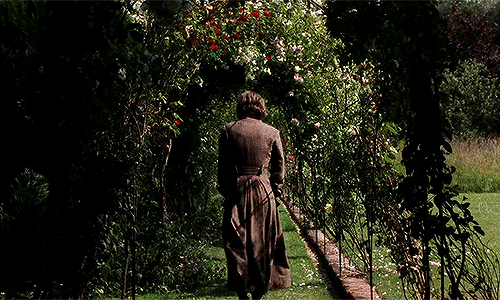
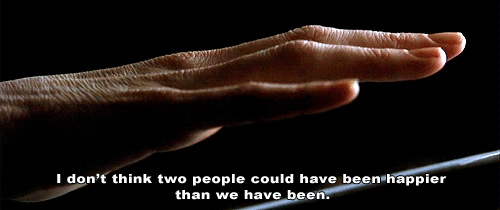

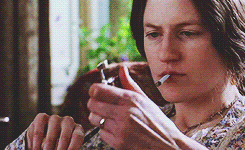



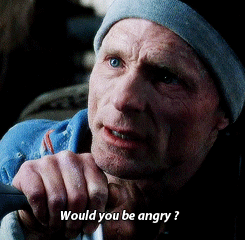
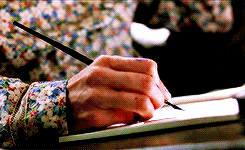


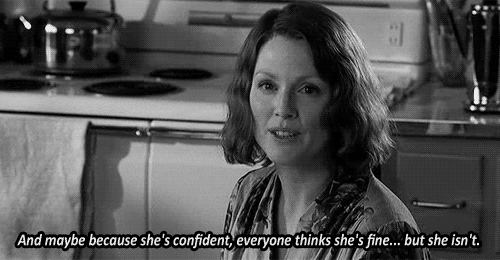

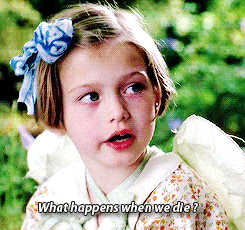
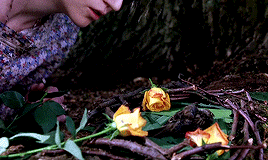

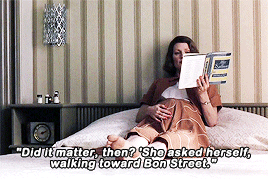





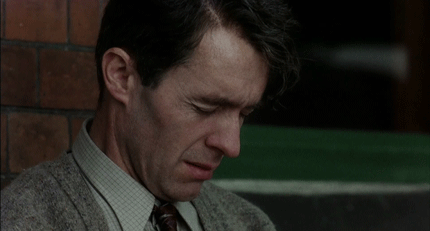




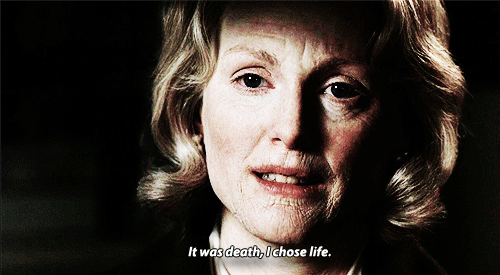

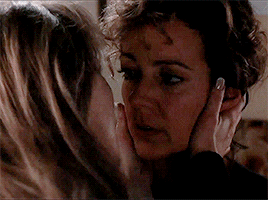
ESE: 85/100
50
+10 for Nicole Kidman
+2 for John C. Reilly
+10 for Julianne Moore
+5 for Allison Janney
+10 for Allison Janney
+10 for Meryl Streep
+5 for connections
-10 for AIDS
-7 for Clarissa being selfish with Richard
-5 for Kitty’s insensitivity
+10 for lesbian content
+5 for bird funeral
+3 for young Richard’s space-themed blankets being the same material as adult Richard’s robe
-10 for the feeling of being so trapped
+5 for Claire Danes
-10 for such a terrible lack of understanding of mental illness
+15 for such an excellent representation of depression
+5 for moving back to London
-5 for jumping out the window right in front of Clarissa
-10 for abandoning your children
+5 for living the life you need to live
+2 for tea
#The Hours#Toni Collette#Ed Harris#Meryl Streep#Miranda Richardson#John C. Reilly#Jeff Daniels#Julianne Moore#Nicole Kidman#Claire Danes#Colin Stinton#Margo Martindale#Stephen Dillane#drama#romance#movies#films#world record#review#Allison Janney
59 notes
·
View notes
Note
😳 🌦️
😳 do you like your name?
i do like my name actually! i didn’t always, there was an era between like 9 and 12 that i really wanted a nickname, partially an attraction to gender neutral or masculinized girl names like leslie from bridge to terribethia or george from nancy drew, partially because my name would often get said or at least spelled incorrectly, and partially because i thought it would make me seem cooler. my name is never going to be on a gas station key chain, but it’s not so uncommon that people think it’s weird. i’ve known a couple other carissa’s in real life (spelled differently) and then there’s clarissa dalloway from mrs dalloway and carissa jones from do revenge, which is great. clarissa i mayyy like a tiny bit better because the “l” is nice and gives it more of a pale blue color where carissa is pale yellow, but better than karissa which is pink, but sometimes people think my name is cLarissa and i have to correct them which is mildly annoying… my middle and last name are fine i guess.
🌦 what is your favorite weather?
i grew up in texas so any time it snowed was sorta magical to me <3 a little bit less so after the grid froze a couple years ago :-( but i have many happy snow memories— waking up to no school and a blanket of fresh snow and spending the day sliding on ice patches in my tennis shoes and sledding down hills on cookie sheets. one of my favorites, staying up late when and seeing the very beginning of snow fall, the road pure white before anyone had driven on it, the streetlights reflecting and making the whole world look glowing red. and my very first memory, when my mom was in the hospital giving birth to my little brother and my grandma and i made a tiny snowman that fit on a plate. :-) that said, i also love a good downpour or a balmy, breezy fall/spring day.
1 note
·
View note
Text
Virginia Woolf Appreciation Week: 3 Closing Lines
'I will come' said Peter, but he sat on for a moment. What is this terror? What is this ecstacy? He thought to himself. What is it that fills me with extraordinary excitement? It is Clarissa, he said. For there she was.
Mrs Dalloway
Yes, she thought, laying down her brush in extreme fatigue, I have had my vision.
To the Lighthouse
For a moment they waited, and then loosed their hands. "Good night," he breathed. "Good night," she murmured back to him.
Night and Day
#mrs dalloway#to the lighthouse#virginia woolf#vwappwk#night and day#runner up was the end of between the acts#the night and day one seems a dumb choice but i find it so ominous in a way especially considering other woolf novels and short stories#when i finished the book it left me with a lot to consider#i think its a good night to katherine as katherine .... and now introducing mrs ralph denham 🙃
24 notes
·
View notes
Text
Public Domain Books
So I’m sure you don’t need to be told that Public Domain day hit on the First of January 2021 which means any books, movies, music, television, radio, comics etc. are now in the Public domain, which is great because that means there are so many things now entering the public domain sphere giving many more things to inspire their own works.
Below you will find five of the more well known books that have now (as of five days ago) lost their copyright and are free to use by all:
1 - The Great Gatsby:
The Great Gatsby, follows Jay Gatsby, a man who orders his life around one desire: to be reunited with Daisy Buchanan, the love he lost five years earlier. Gatsby's quest leads him from poverty to wealth, into the arms of his beloved, and eventually to death.
2 - Aldous Huxley's Those Barren Leaves:
In a renovated Italian palace set above the blue of the sea, the Junoesque figure of Mrs. Aldwinkle moves among her guests. These include a poet who earns his living editing The Rabbit Fancier's Gazette; a popular novelist who records every detail of her affair with another guest as future literary material; an aging philosopher who pursues a wealthy yet mentally-disabled heiress and a pair of na-ve and charming young lovers.
3 - The Secret of Chimneys by Agatha Christie:
A young drifter finds more than he bargained for when he agrees to deliver a parcel to an English country house. Little did Anthony Cade suspect that a simple errand on behalf of a friend would make him the centerpiece of a murderous international conspiracy.
4 - Arrowsmith by Sinclair Lewis published in 1925
Tells the story of bright and scientifically minded Martin Arrowsmith as he makes his way from a small town in the Midwest to the upper echelons of the scientific community. (He is born in Elk Mills, Winnemac, the same fictional state in which several of Lewis's other novels are set.)
5 - Mrs. Dalloway by Virginia Woolf
It examines one day in the life of Clarissa Dalloway, an upper-class Londoner married to a member of Parliament. Mrs. Dalloway is essentially plotless; what action there is takes place mainly in the characters' consciousness.
6 - In Our Time by Ernest Hemmingway
In Our Time is a collection of short stories and vignettes about the years before, during, and after World War I. The stories, which are titled, are separated by vignettes, each of which is a chapter. The first story, "On the Quai at Smyrna," introduces the war through a description of an evacuation.
7 - The Trial by Franz Kafka (only the original German version)
The Trial is the chronicle of that intervening year of K.'s case, his struggles and encounters with the invisible Law and the untouchable Court. It is an account, ultimately, of state-induced self-destruction. Yet, as in all of Kafka's best writing, the "meaning" is far from clear.
There are so many other books that have entered the public domain as well as other mediums. I plan to put a few more posts up like this one with other public domain works including more books, films, posters, cartoons, films and many other things in the coming days and weeks.
Hope you find something in the above seven that takes your fancy and you manage to create something from this. Enjoy these new spoils for the public domain.
#PublicDomainGuy#public domain day 2021#public domain#great gatsby#ernest hemmingway#agatha christie
8 notes
·
View notes
Photo
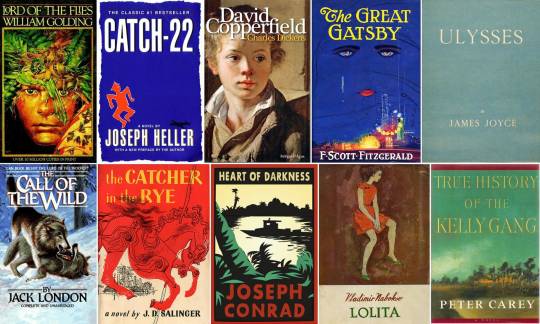
The 100 best novels written in English: the full list
After two years of careful consideration, Robert McCrum has reached a verdict on his selection of the 100 greatest novels written in English. Take a look at his list.
1. The Pilgrim’s Progress by John Bunyan (1678)
A story of a man in search of truth told with the simple clarity and beauty of Bunyan’s prose make this the ultimate English classic.
2. Robinson Crusoe by Daniel Defoe (1719)
By the end of the 19th century, no book in English literary history had enjoyed more editions, spin-offs and translations. Crusoe’s world-famous novel is a complex literary confection, and it’s irresistible.
3. Gulliver’s Travels by Jonathan Swift (1726)
A satirical masterpiece that’s never been out of print, Jonathan Swift’s Gulliver’s Travels comes third in our list of the best novels written in English
4. Clarissa by Samuel Richardson (1748)
Clarissa is a tragic heroine, pressured by her unscrupulous nouveau-riche family to marry a wealthy man she detests, in the book that Samuel Johnson described as “the first book in the world for the knowledge it displays of the human heart.”
5. Tom Jones by Henry Fielding (1749)
Tom Jones is a classic English novel that captures the spirit of its age and whose famous characters have come to represent Augustan society in all its loquacious, turbulent, comic variety.
6. The Life and Opinions of Tristram Shandy, Gentleman by Laurence Sterne (1759)
Laurence Sterne’s vivid novel caused delight and consternation when it first appeared and has lost little of its original bite.
7. Emma by Jane Austen (1816)
Jane Austen’s Emma is her masterpiece, mixing the sparkle of her early books with a deep sensibility.
8. Frankenstein by Mary Shelley (1818)
Mary Shelley’s first novel has been hailed as a masterpiece of horror and the macabre.
9. Nightmare Abbey by Thomas Love Peacock (1818)
The great pleasure of Nightmare Abbey, which was inspired by Thomas Love Peacock’s friendship with Shelley, lies in the delight the author takes in poking fun at the romantic movement.
10. The Narrative of Arthur Gordon Pym of Nantucket by Edgar Allan Poe (1838)
Edgar Allan Poe’s only novel – a classic adventure story with supernatural elements – has fascinated and influenced generations of writers.
11. Sybil by Benjamin Disraeli (1845)
The future prime minister displayed flashes of brilliance that equalled the greatest Victorian novelists.
12. Jane Eyre by Charlotte Brontë (1847)
Charlotte Brontë’s erotic, gothic masterpiece became the sensation of Victorian England. Its great breakthrough was its intimate dialogue with the reader.
13. Wuthering Heights by Emily Brontë (1847)
Emily Brontë’s windswept masterpiece is notable not just for its wild beauty but for its daring reinvention of the novel form itself.
14. Vanity Fair by William Thackeray (1848)
William Thackeray’s masterpiece, set in Regency England, is a bravura performance by a writer at the top of his game.
15. David Copperfield by Charles Dickens (1850)
David Copperfield marked the point at which Dickens became the great entertainer and also laid the foundations for his later, darker masterpieces.
16. The Scarlet Letter by Nathaniel Hawthorne (1850)
Nathaniel Hawthorne’s astounding book is full of intense symbolism and as haunting as anything by Edgar Allan Poe.
17. Moby-Dick by Herman Melville (1851)
Wise, funny and gripping, Melville’s epic work continues to cast a long shadow over American literature.
18. Alice’s Adventures in Wonderland by Lewis Carroll (1865)
Lewis Carroll’s brilliant nonsense tale is one of the most influential and best loved in the English canon.
19. The Moonstone by Wilkie Collins (1868)
Wilkie Collins’s masterpiece, hailed by many as the greatest English detective novel, is a brilliant marriage of the sensational and the realistic.
20. Little Women by Louisa May Alcott (1868-9)
Louisa May Alcott’s highly original tale aimed at a young female market has iconic status in America and never been out of print.
21. Middlemarch by George Eliot (1871-2)
This cathedral of words stands today as perhaps the greatest of the great Victorian fictions.
22. The Way We Live Now by Anthony Trollope (1875)
Inspired by the author’s fury at the corrupt state of England, and dismissed by critics at the time, The Way We Live Now is recognised as Trollope’s masterpiece.
23. The Adventures of Huckleberry Finn by Mark Twain (1884/5)
Mark Twain’s tale of a rebel boy and a runaway slave seeking liberation upon the waters of the Mississippi remains a defining classic of American literature.
24. Kidnapped by Robert Louis Stevenson (1886)
A thrilling adventure story, gripping history and fascinating study of the Scottish character, Kidnapped has lost none of its power.
25. Three Men in a Boat by Jerome K Jerome (1889)
Jerome K Jerome’s accidental classic about messing about on the Thames remains a comic gem.
26. The Sign of Four by Arthur Conan Doyle (1890)
Sherlock Holmes’s second outing sees Conan Doyle’s brilliant sleuth – and his bluff sidekick Watson – come into their own.
27. The Picture of Dorian Gray by Oscar Wilde (1891)
Wilde’s brilliantly allusive moral tale of youth, beauty and corruption was greeted with howls of protest on publication.
28. New Grub Street by George Gissing (1891)
George Gissing’s portrayal of the hard facts of a literary life remains as relevant today as it was in the late 19th century.
29. Jude the Obscure by Thomas Hardy (1895)
Hardy exposed his deepest feelings in this bleak, angry novel and, stung by the hostile response, he never wrote another.
30. The Red Badge of Courage by Stephen Crane (1895)
Stephen Crane’s account of a young man’s passage to manhood through soldiery is a blueprint for the great American war novel.
31. Dracula by Bram Stoker (1897)
Bram Stoker’s classic vampire story was very much of its time but still resonates more than a century later.
32. Heart of Darkness by Joseph Conrad (1899)
Joseph Conrad’s masterpiece about a life-changing journey in search of Mr Kurtz has the simplicity of great myth.
33. Sister Carrie by Theodore Dreiser (1900)
Theodore Dreiser was no stylist, but there’s a terrific momentum to his unflinching novel about a country girl’s American dream.
34. Kim by Rudyard Kipling (1901)
In Kipling’s classic boy’s own spy story, an orphan in British India must make a choice between east and west.
35. The Call of the Wild by Jack London (1903)
Jack London’s vivid adventures of a pet dog that goes back to nature reveal an extraordinary style and consummate storytelling.
36. The Golden Bowl by Henry James (1904)
American literature contains nothing else quite like Henry James’s amazing, labyrinthine and claustrophobic novel.
37. Hadrian the Seventh by Frederick Rolfe (1904)
This entertaining if contrived story of a hack writer and priest who becomes pope sheds vivid light on its eccentric author – described by DH Lawrence as a “man-demon”.
38. The Wind in the Willows by Kenneth Grahame (1908)
The evergreen tale from the riverbank and a powerful contribution to the mythology of Edwardian England.
39. The History of Mr Polly by HG Wells (1910)
The choice is great, but Wells’s ironic portrait of a man very like himself is the novel that stands out.
40. Zuleika Dobson by Max Beerbohm (1911)
The passage of time has conferred a dark power upon Beerbohm’s ostensibly light and witty Edwardian satire.
41. The Good Soldier by Ford Madox Ford (1915)
Ford’s masterpiece is a searing study of moral dissolution behind the facade of an English gentleman – and its stylistic influence lingers to this day.
42. The Thirty-Nine Steps by John Buchan (1915)
John Buchan’s espionage thriller, with its sparse, contemporary prose, is hard to put down.
43. The Rainbow by DH Lawrence (1915)
The Rainbow is perhaps DH Lawrence’s finest work, showing him for the radical, protean, thoroughly modern writer he was.
44. Of Human Bondage by W Somerset Maugham (1915)
Somerset Maugham’s semi-autobiographical novel shows the author’s savage honesty and gift for storytelling at their best.
45. The Age of Innocence by Edith Wharton (1920)
The story of a blighted New York marriage stands as a fierce indictment of a society estranged from culture.
46. Ulysses by James Joyce (1922)
This portrait of a day in the lives of three Dubliners remains a towering work, in its word play surpassing even Shakespeare.
47. Babbitt by Sinclair Lewis (1922)
What it lacks in structure and guile, this enthralling take on 20s America makes up for in vivid satire and characterisation.
48. A Passage to India by EM Forster (1924)
EM Forster’s most successful work is eerily prescient on the subject of empire.
49. Gentlemen Prefer Blondes by Anita Loos (1925)
A guilty pleasure it may be, but it is impossible to overlook the enduring influence of a tale that helped to define the jazz age.
50. Mrs Dalloway by Virginia Woolf (1925)
Woolf’s great novel makes a day of party preparations the canvas for themes of lost love, life choices and mental illness.
51. The Great Gatsby by F Scott Fitzgerald (1925)
Fitzgerald’s jazz age masterpiece has become a tantalising metaphor for the eternal mystery of art.
52. Lolly Willowes by Sylvia Townsend Warner (1926)
A young woman escapes convention by becoming a witch in this original satire about England after the first world war.
53. The Sun Also Rises by Ernest Hemingway (1926)
Hemingway’s first and best novel makes an escape to 1920s Spain to explore courage, cowardice and manly authenticity.
54. The Maltese Falcon by Dashiell Hammett (1929)
Dashiell Hammett’s crime thriller and its hard-boiled hero Sam Spade influenced everyone from Chandler to Le Carré.
55. As I Lay Dying by William Faulkner (1930)
The influence of William Faulkner’s immersive tale of raw Mississippi rural life can be felt to this day.
56. Brave New World by Aldous Huxley (1932)
Aldous Huxley’s vision of a future human race controlled by global capitalism is every bit as prescient as Orwell’s more famous dystopia.
57. Cold Comfort Farm by Stella Gibbons (1932)
The book for which Gibbons is best remembered was a satire of late-Victorian pastoral fiction but went on to influence many subsequent generations.
58. Nineteen Nineteen by John Dos Passos (1932)
The middle volume of John Dos Passos’s USA trilogy is revolutionary in its intent, techniques and lasting impact.
59. Tropic of Cancer by Henry Miller (1934)
The US novelist’s debut revelled in a Paris underworld of seedy sex and changed the course of the novel – though not without a fight with the censors.
60. Scoop by Evelyn Waugh (1938)
Evelyn Waugh’s Fleet Street satire remains sharp, pertinent and memorable.
61. Murphy by Samuel Beckett (1938)
Samuel Beckett’s first published novel is an absurdist masterpiece, a showcase for his uniquely comic voice.
62. The Big Sleep by Raymond Chandler (1939)
Raymond Chandler’s hardboiled debut brings to life the seedy LA underworld – and Philip Marlowe, the archetypal fictional detective.
63. Party Going by Henry Green (1939)
Set on the eve of war, this neglected modernist masterpiece centres on a group of bright young revellers delayed by fog.
64. At Swim-Two-Birds by Flann O’Brien (1939)
Labyrinthine and multilayered, Flann O’Brien’s humorous debut is both a reflection on, and an exemplar of, the Irish novel.
65. The Grapes of Wrath by John Steinbeck (1939)
One of the greatest of great American novels, this study of a family torn apart by poverty and desperation in the Great Depression shocked US society.
66. Joy in the Morning by PG Wodehouse (1946)
PG Wodehouse’s elegiac Jeeves novel, written during his disastrous years in wartime Germany, remains his masterpiece.
67. All the King’s Men by Robert Penn Warren (1946)
A compelling story of personal and political corruption, set in the 1930s in the American south.
68. Under the Volcano by Malcolm Lowry (1947)
Malcolm Lowry’s masterpiece about the last hours of an alcoholic ex-diplomat in Mexico is set to the drumbeat of coming conflict.
69. The Heat of the Day by Elizabeth Bowen (1948)
Elizabeth Bowen’s 1948 novel perfectly captures the atmosphere of London during the blitz while providing brilliant insights into the human heart.
70. Nineteen Eighty-Four by George Orwell (1949)
George Orwell’s dystopian classic cost its author dear but is arguably the best-known novel in English of the 20th century.
71. The End of the Affair by Graham Greene (1951)
Graham Greene’s moving tale of adultery and its aftermath ties together several vital strands in his work.
72. The Catcher in the Rye by JD Salinger (1951)
JD Salinger’s study of teenage rebellion remains one of the most controversial and best-loved American novels of the 20th century.
73. The Adventures of Augie March by Saul Bellow (1953)
In the long-running hunt to identify the great American novel, Saul Bellow’s picaresque third book frequently hits the mark.
74. Lord of the Flies by William Golding (1954)
Dismissed at first as “rubbish & dull”, Golding’s brilliantly observed dystopian desert island tale has since become a classic.
75. Lolita by Vladimir Nabokov (1955)
Nabokov’s tragicomic tour de force crosses the boundaries of good taste with glee.
76. On the Road by Jack Kerouac (1957)
The creative history of Kerouac’s beat-generation classic, fuelled by pea soup and benzedrine, has become as famous as the novel itself.
77. Voss by Patrick White (1957)
A love story set against the disappearance of an explorer in the outback, Voss paved the way for a generation of Australian writers to shrug off the colonial past.
78. To Kill a Mockingbird by Harper Lee (1960)
Her second novel finally arrived this summer, but Harper Lee’s first did enough alone to secure her lasting fame, and remains a truly popular classic.
79. The Prime of Miss Jean Brodie by Muriel Spark (1960)
Short and bittersweet, Muriel Spark’s tale of the downfall of a Scottish schoolmistress is a masterpiece of narrative fiction.
80. Catch-22 by Joseph Heller (1961)
This acerbic anti-war novel was slow to fire the public imagination, but is rightly regarded as a groundbreaking critique of military madness.
81. The Golden Notebook by Doris Lessing (1962)
Hailed as one of the key texts of the women’s movement of the 1960s, this study of a divorced single mother’s search for personal and political identity remains a defiant, ambitious tour de force.
82. A Clockwork Orange by Anthony Burgess (1962)
Anthony Burgess’s dystopian classic still continues to startle and provoke, refusing to be outshone by Stanley Kubrick’s brilliant film adaptation.
83. A Single Man by Christopher Isherwood (1964)
Christopher Isherwood’s story of a gay Englishman struggling with bereavement in LA is a work of compressed brilliance.
84. In Cold Blood by Truman Capote (1966)
Truman Capote’s non-fiction novel, a true story of bloody murder in rural Kansas, opens a window on the dark underbelly of postwar America.
85. The Bell Jar by Sylvia Plath (1966)
Sylvia Plath’s painfully graphic roman à clef, in which a woman struggles with her identity in the face of social pressure, is a key text of Anglo-American feminism.
86. Portnoy’s Complaint by Philip Roth (1969)
This wickedly funny novel about a young Jewish American’s obsession with masturbation caused outrage on publication, but remains his most dazzling work.
87. Mrs Palfrey at the Claremont by Elizabeth Taylor (1971)
Elizabeth Taylor’s exquisitely drawn character study of eccentricity in old age is a sharp and witty portrait of genteel postwar English life facing the changes taking shape in the 60s.
88. Rabbit Redux by John Updike (1971)
Harry “Rabbit” Angstrom, Updike’s lovably mediocre alter ego, is one of America’s great literary protoganists, up there with Huck Finn and Jay Gatsby.
89. Song of Solomon by Toni Morrison (1977)
The novel with which the Nobel prize-winning author established her name is a kaleidoscopic evocation of the African-American experience in the 20th century.
90. A Bend in the River by VS Naipaul (1979)
VS Naipaul’s hellish vision of an African nation’s path to independence saw him accused of racism, but remains his masterpiece.
91. Midnight’s Children by Salman Rushdie (1981)
The personal and the historical merge in Salman Rushdie’s dazzling, game-changing Indian English novel of a young man born at the very moment of Indian independence.
92. Housekeeping by Marilynne Robinson (1981)
Marilynne Robinson’s tale of orphaned sisters and their oddball aunt in a remote Idaho town is admired by everyone from Barack Obama to Bret Easton Ellis.
93. Money: A Suicide Note by Martin Amis (1984)
Martin Amis’s era-defining ode to excess unleashed one of literature’s greatest modern monsters in self-destructive antihero John Self.
94. An Artist of the Floating World by Kazuo Ishiguro (1986)
Kazuo Ishiguro’s novel about a retired artist in postwar Japan, reflecting on his career during the country’s dark years, is a tour de force of unreliable narration.
95. The Beginning of Spring by Penelope Fitzgerald (1988)
Fitzgerald’s story, set in Russia just before the Bolshevik revolution, is her masterpiece: a brilliant miniature whose peculiar magic almost defies analysis.
96. Breathing Lessons by Anne Tyler (1988)
Anne Tyler’s portrayal of a middle-aged, mid-American marriage displays her narrative clarity, comic timing and ear for American speech to perfection.
97. Amongst Women by John McGahern (1990)
This modern Irish masterpiece is both a study of the faultlines of Irish patriarchy and an elegy for a lost world.
98. Underworld by Don DeLillo (1997)
A writer of “frightening perception”, Don DeLillo guides the reader in an epic journey through America’s history and popular culture.
99. Disgrace by JM Coetzee (1999)
In his Booker-winning masterpiece, Coetzee’s intensely human vision infuses a fictional world that both invites and confounds political interpretation.
100. True History of the Kelly Gang by Peter Carey (2000)
Peter Carey rounds off our list of literary milestones with a Booker prize-winning tour-de-force examining the life and times of Australia’s infamous antihero, Ned Kelly.
Daily inspiration. Discover more photos at http://justforbooks.tumblr.com
69 notes
·
View notes
Text
Favourite characters
Rules: Name ten favourite characters from ten different things (TV, movies, books, etc.), then tag ten people.
Thank you, @coriesocks , for tagging me. I had a fun time to make the list in my head when I was falling asleep yesterday night.
1. Buffy Summers from Buffy the Vampire Slayer (TV show)
2. Max Black from 2 Broke Girls (TV show)
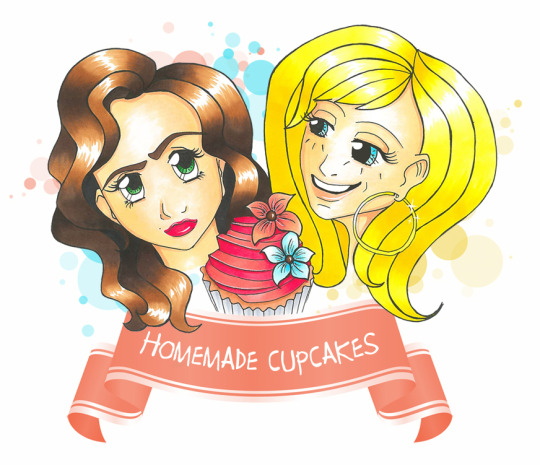
3. Holden Caufield from The Catcher in the Rye (book)
4. Alucard from Hellsing (anime)

5. Clarissa Dalloway from Mrs Dalloway (book)
6. Sirius Black from Harry Potter series (book)
7. Daenerys Targaryen from Game of Thrones (TV show)

8. Fleance from @pandectcomic (online comics)
9. Danny Vinyard from American History X (movie)
10. Monica from Friends (TV show)
Tagging @grey-edges @theprodigypenguin @breathing-and-stuff @teddyakababy @booknerd-23 @wallopthewicked @vias-words @corvidxqueen @cynopoe @livingincuteness
5 notes
·
View notes